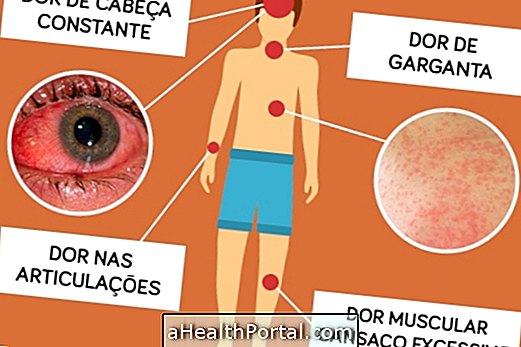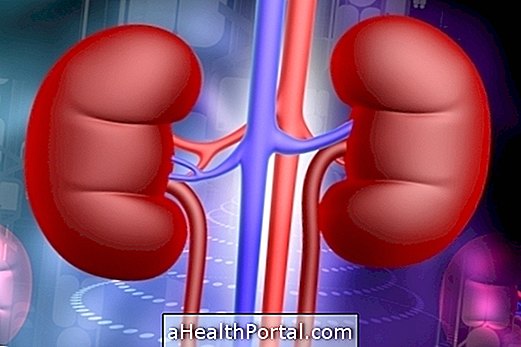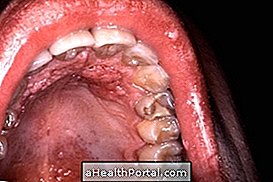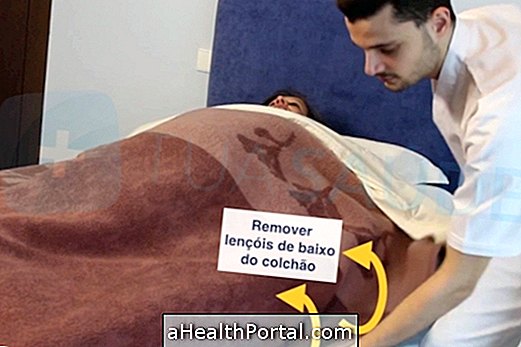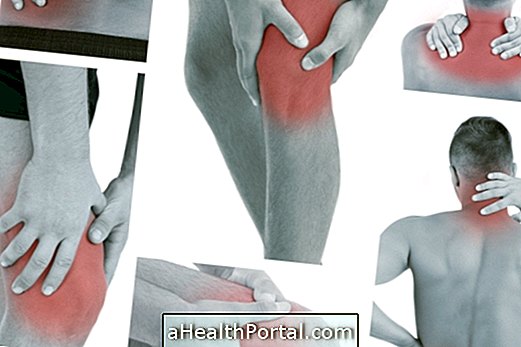Measles is a highly contagious disease that causes symptoms such as fever, persistent cough, runny nose and conjunctivitis, with small red spots that begin near the scalp and then go down, spreading throughout the body.
The treatment of measles is done so as to alleviate the symptoms because this disease is caused by a virus and so the body can get rid of it alone without the need for antibiotics.
The measles vaccine is the best way to prevent the disease and is part of the basic schedule of childhood vaccination, given to children between 12 and 15 months, with reinforcement between 4 and 6 years. This vaccine is highly effective but as the virus can mutate, sometimes even vaccinated people can be infected by measles years later.
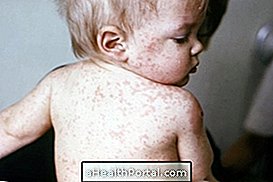

1. Who should take the vaccine?
The measles vaccine is usually given free of charge after 12 months of age, with booster between 15 and 24 months. In the case of the tetraviral vaccine, the dose is usually unique and should be applied between 12 months and 5 years.
There are 3 main ways to take the measles vaccine, the exclusive vaccine or the combined vaccine:
- Triple-viral vaccine : against measles, mumps and rubella;
- Tetraviral vaccine : it also protects from chicken pox.
Anyone can be vaccinated as long as they have not yet taken the vaccine, but the measles vaccine can also be given to people who are exposed to the virus, such as when the parents were not vaccinated and have a child with measles. But in this case, for it to take effect, the person should be vaccinated within 3 days after the onset of symptoms in the child, for example.
2. What are the main symptoms?
The most common symptoms of measles include:
- Red spots on the skin that appear first on the face and then spread out towards the feet;
- White spots round the cheek;
- High fever, above 38.5ºC;
- Cough with catarrh;
- Conjunctivitis;
- Hypersensitivity to light;
- Running nose;
- Loss of appetite;
- There may be headache, abdominal pain, vomiting, diarrhea, and muscle pain.
- Measles does not itch, as it does in other diseases such as chicken pox and rubella.
Take our online test and find out if it can be measles.
The diagnosis of measles can be made by observing its symptoms, especially in places most affected by the disease, or in case of an epidemic, but it may be necessary to have a blood test that shows the presence of measles virus and antibodies, when is in a city that is rarely affected by the disease.
Other diseases that may cause similar symptoms and therefore may be mistaken for measles are rubella, roseola, scarlet fever, Kawasaki disease, infectious mononucleosis, rocky mountain spotted fever, enterovirus or adenovirus infection and drug sensitivity. Rubella is a less serious disease without a cough.
3. Does measles itch?
Unlike other diseases such as chicken pox or rubella, measles spots do not cause itchy skin.

4. What is the recommended treatment?
The treatment of measles consists of diminishing the symptoms through rest, adequate hydration and use of medicines to lower the fever like Dipirona. In addition, the World Health Organization also indicates vitamin A supplementation for all children diagnosed with measles.
Usually the person with measles recovers completely, achieving healing in about 10 days after the onset of symptoms. But the doctor may indicate the use of antibiotics when there is evidence of bacterial infection, if the person also has ear infection or pneumonia, for example, because these are common complications of measles.
See more about the options available for the treatment of Measles.
5. What virus causes measles?
Measles is a virus of the Morbillivirus family, which grows and multiplies in the mucous membranes of the nose and throat of an infected adult or child. In this way, this virus is easily transmitted in small droplets released by coughing, talking or sneezing, for example.
On surfaces, the virus can stay active for up to 2 hours, so disinfect well all surfaces in rooms where someone with measles was.
6. How does the transmission take place?
Contamination of measles occurs mainly through the air, when an infected person, coughs or sneezes, and another who is near inhales these secretions. During the 4 days before the spots on the skin until its complete disappearance the patient is dangerously infectious because it is when the secretions are very active and the person does not take all necessary care to not infect others.

7. How to prevent measles?
The best way to prevent measles is by doing the vaccination against the disease, however, there are some simple care that can also help, such as:
- Wash hands often, especially after being in contact with sick people;
- Avoid touching your eyes, nose or mouth if your hands are not clean;
- Avoid being indoors with lots of people;
- Do not have very direct contact with sick people, like kissing, hugging or sharing cutlery.
Isolation is another have been effective in preventing the contagion of the disease although only vaccination is actually effective. Therefore, if a person is diagnosed with measles, all those in close contact with him, such as parents and siblings, should be vaccinated if they have not yet been vaccinated, and the patient should stay at home, at rest, without going to school or work, so as not to contaminate others.
See more ways to protect yourself in: Transmission of measles.
8. What are the complications of measles?
In most cases, measles disappears without causing any kind of sequelae in the person, however, in people with the weakened immune system, there may arise some complications such as:
- Respiratory tract obstruction;
- Pneumonia;
- Encephalitis;
- Ear infection;
- Blindness;
- Severe diarrhea leading to dehydration.
In addition, if measles occurs in the pregnant woman there is also a high risk of premature delivery or miscarriage. Understand better how measles affects pregnancy.
Some situations in which the person may be with the immune system so weak that his body can not defend himself against the measles virus include people in treatment for cancer or AIDS, children who were born with the HIV virus, people who have received organ transplants or who are malnourished.

